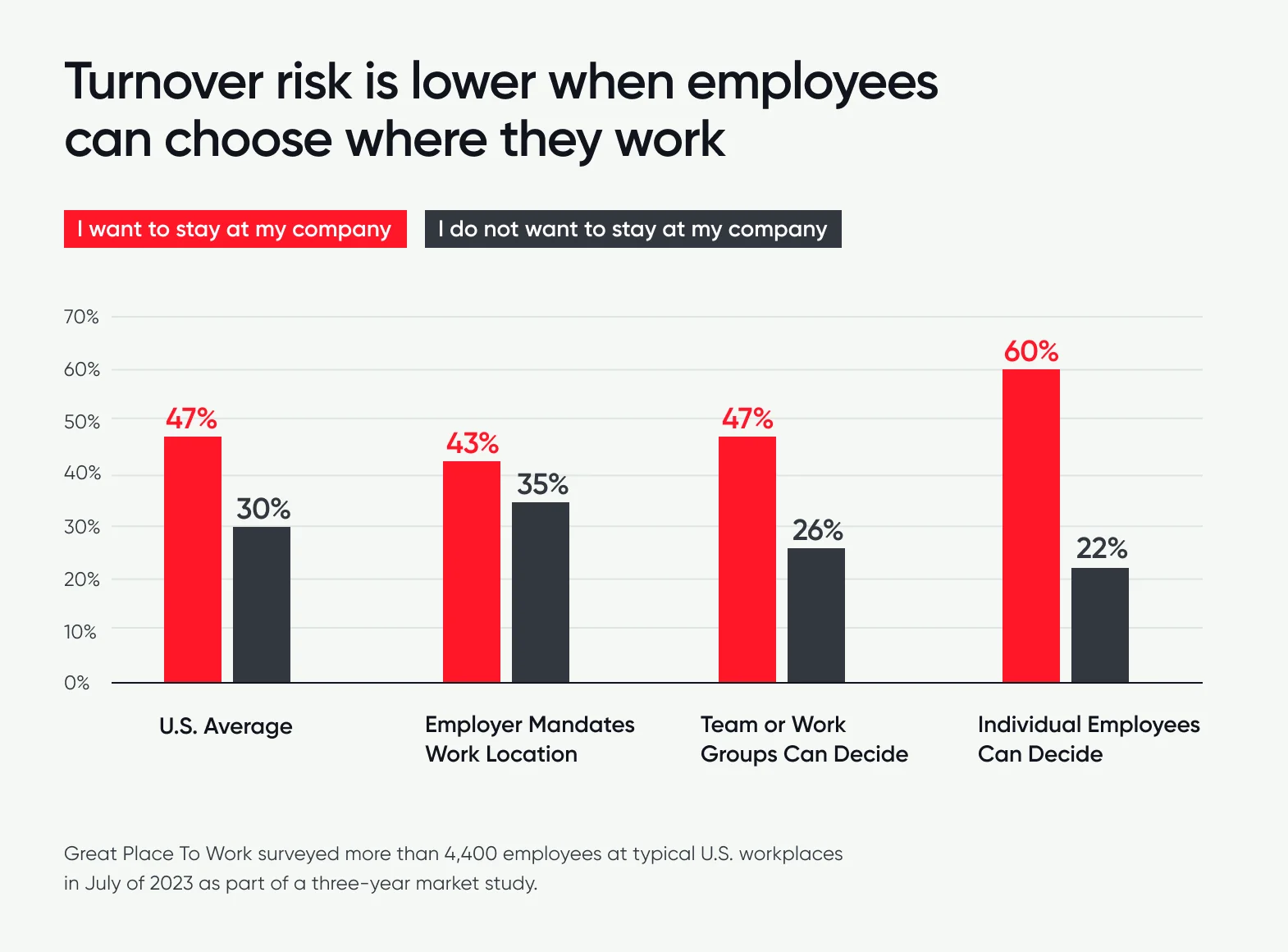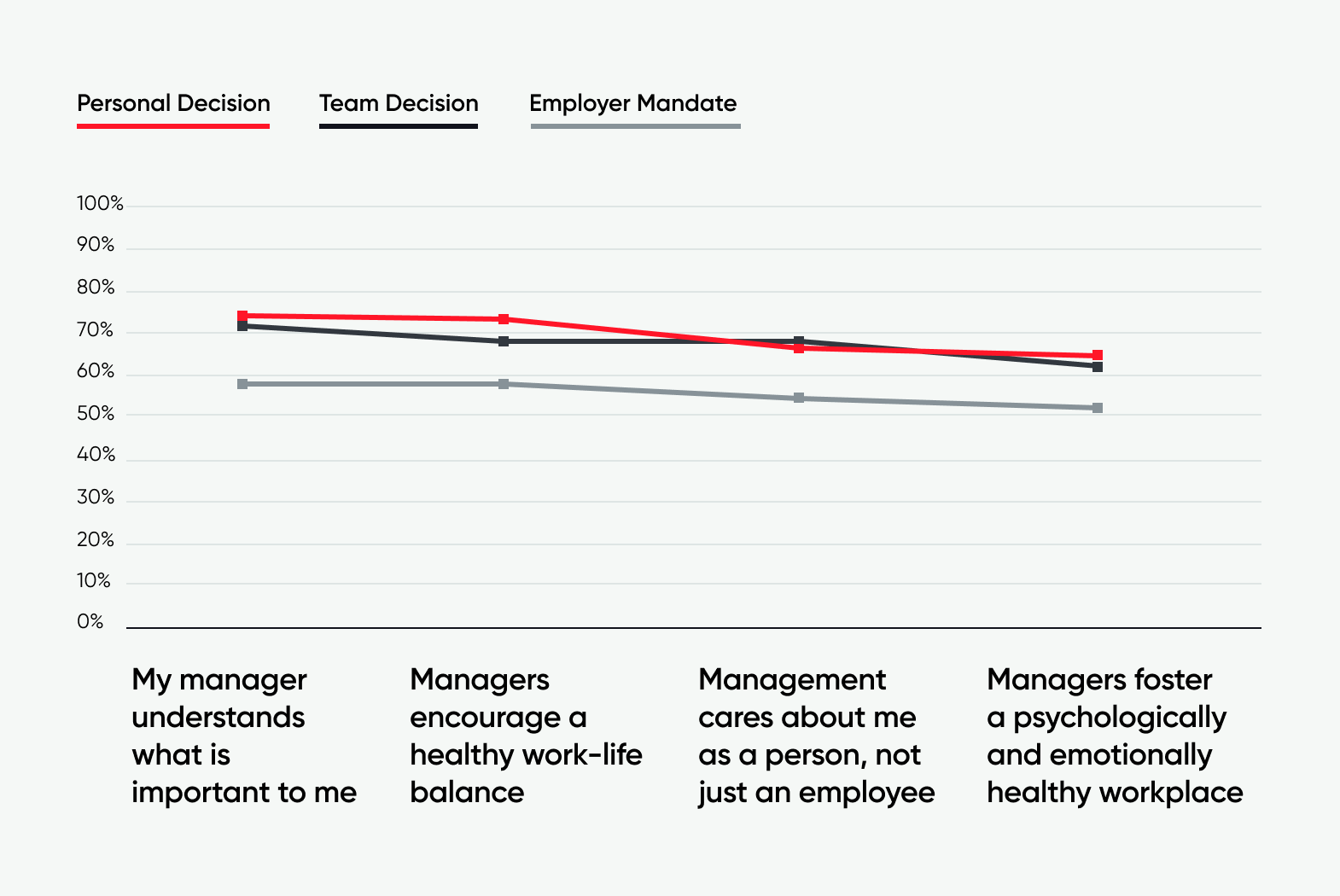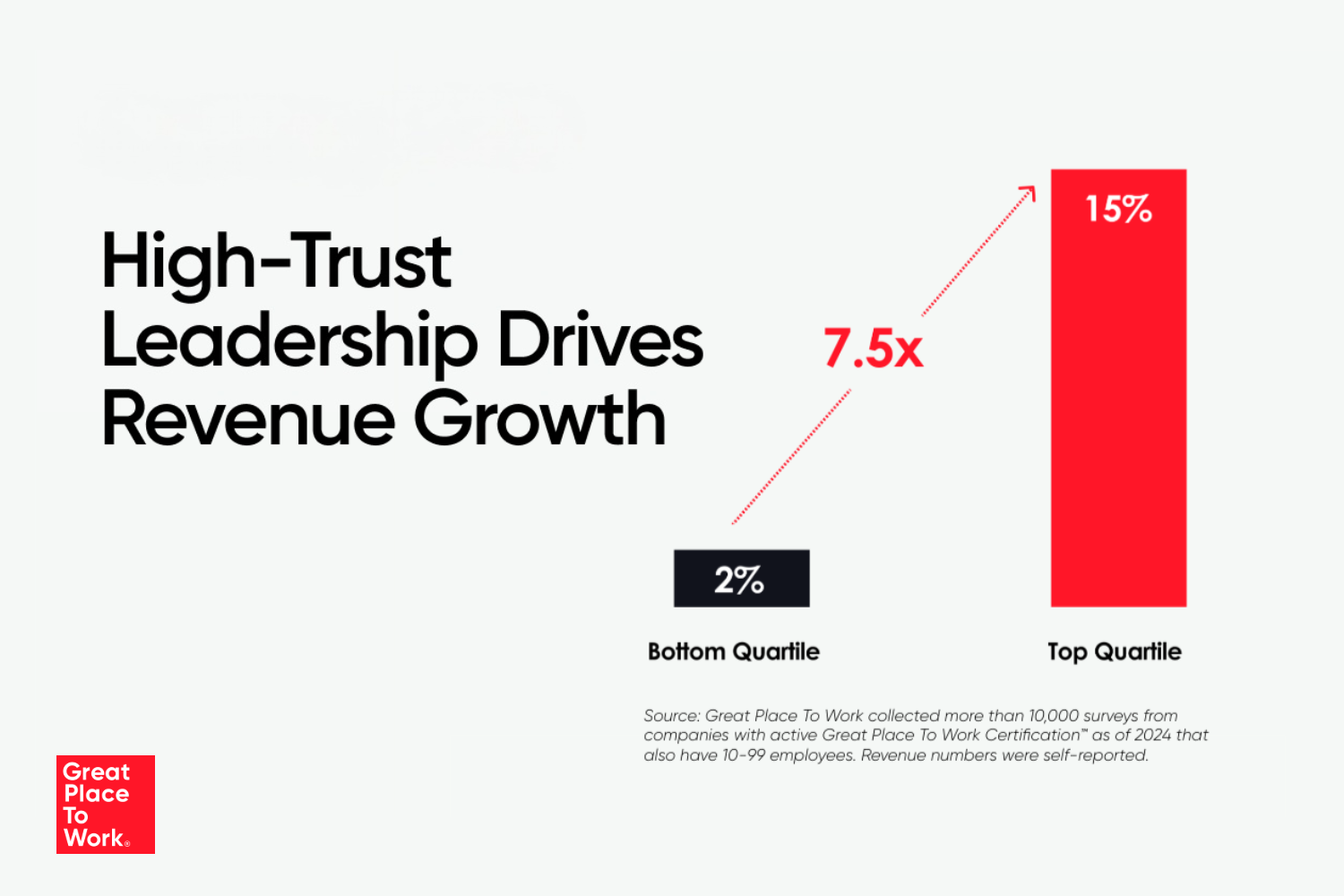A new report from Great Place To Work examines the risks and opportunities created by flexible work policies.
Where an employee works doesn’t matter as much as the influence they have over the decision of where they work.
That’s the biggest takeaway from a new report from Great Place To Work® titled “Return-to-Office Mandates and the Future of Work.” Great Place To Work surveyed 4,400 employees to capture the experience of employees at a typical U.S. workplace and discover how work location policies affect them.
Remote, hybrid, and onsite workers all have a worse experience when their employer mandates where they work. When employees are empowered to choose a policy that works best for their needs — either as an individual or as a team — their experience gets better.
Despite the data, seven in 10 U.S. employees report that their employer mandates where they work.
Flexibility is just one piece of the puzzle in creating a great workplace culture. From the data, Great Place To Work compared the experiences of employees at typical U.S. companies with Great Place To Work Certified™ companies, which have met a threshold of trust, pride, and camaraderie throughout the organization. These high-trust workplaces are creating more consistently positive experiences for employees, revealing how companies that can’t offer remote or hybrid work can offer experiences that employees value even more.
Download the report to see all the insights.
Stagnant well-being
Despite an improving employee experience overall, workers at a typical U.S. workplace still struggle with their mental and emotional health.
In surveys from 2021 to 2023, the typical employee experience has improved 15% across 17 different metrics. However, psychological and emotional health hasn’t improved, with only 55% of respondents saying they have a healthy work environment.
Remote work does have a positive impact on well-being, with remote workers being 27% more likely to look forward to coming to work than onsite colleagues, and 19% more likely to report a psychologically and emotionally healthy workplace.
Mandates pose risks
The survey shows that mandates — whether for a return to the office, remote work, or a hybrid format — pose risks for employee retention, productivity, and more.
Employees who can choose between remote, hybrid, and onsite work are three times more likely to want to stay at their company. If their team can set the policy, they are two times more likely to want to stay.
“Quit and stay” risk — the likelihood that an employee will become disengaged — also goes up with mandates. When individual employees can choose between remote, hybrid, or onsite work, they are 14 times less likely to “quit and stay.”

Managers struggle with mandates
When employees have a mandate about where they work, their relationships with their managers suffer.
Employees who report having a mandate are less likely to say their manager understands them, and less likely to say management cares about them. They are also less likely to say their manager creates a healthy work environment.

The gap demonstrates the clear need for companies that can’t be flexible around work location to invest in their middle management. Leaders will need support to strengthen relationships that are strained by mandates and inflexible work options.
Industry insights
Different industries face different variables when it comes to onsite, remote work, or a hybrid mix of the two. The kind of work employees do dictates different responsibilities for employers to create a best-in-class experience.
The report analyzes five different industries to understand how organizations should adapt to meet the expectations of their unique workforce. Workers in technology need more support around communication to ensure remote workers stay connected to management. Workers in health care need more recognition of their contributions, and creative solutions to meet their needs when remote work isn’t an option.
For all industries, the value of listening to employees with surveys and listening programs is extremely high. At the heart of the debate over return-to-office mandates is the desire for employees to have a say in policies that affect them.
When companies listen to employees — and take tangible, measurable action based on what they hear — employees are more likely to feel heard and appreciated. Those feelings have a real business impact. Companies that deliver a better employee experience see corresponding business benefits — including higher productivity and stronger stock market returns.
Download your copy of this report today!











